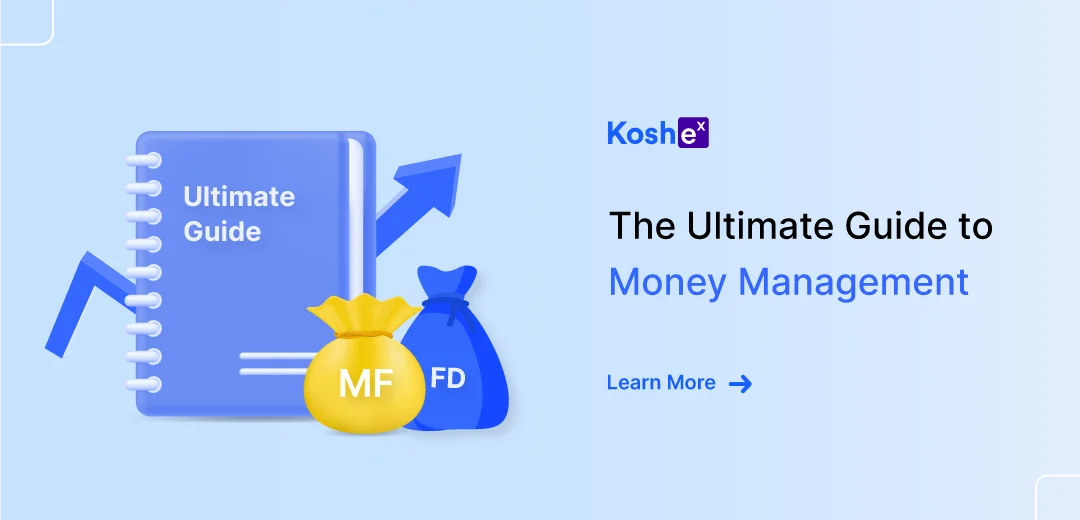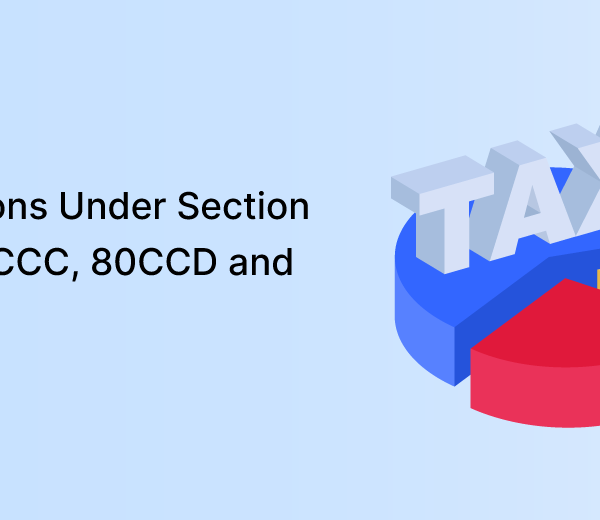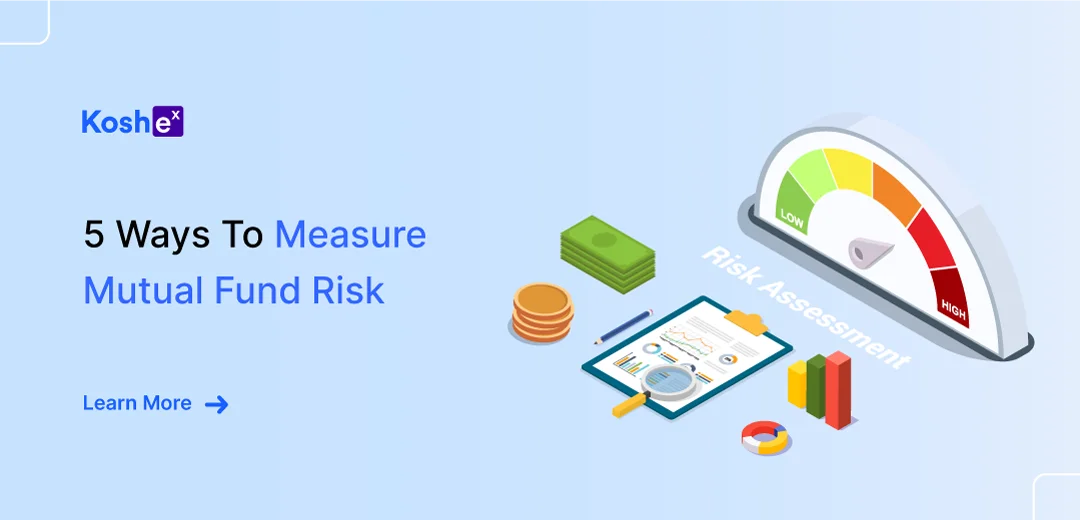Money management is an essential life skill that we must all learn, irrespective of how much we earn. A 2021 Ipsos global survey revealed that 42% of the respondents considered “having more money” one of their top sources of happiness. This is your sign to start saving early!
Why don’t you sign up with Koshex to understand exactly how to go about it?
To preserve the long-term security and liquidity of our finances, we must plan to save, invest and spend money prudently and methodically. All this is possible with thoughtful, attainable, and strategic money management.
Understanding Money Management: Money Saved is Money Earned
Money management is much more than scraping through the month with what is left after paying our bills. It is about understanding our financial position, budgeting wisely, and investing mindfully, so we have enough savings for an emergency fund and retirement account.
Irrespective of how much we earn or whether we have inherited wealth, it is vital to start managing our money as early as possible.
Let’s look at a few tips to help us create attainable financial objectives.
1. Create a budget
Creating a budget is the first and most crucial step in money management.
If you always say, “I don’t know where my money goes”, you could practice zero-sum budgeting. When the difference between our expenses and income is zero, we know where we put every single rupee from our income.
For others who have a hold on their finances, creating a budget starts with calculating our salary and tracking our spending. This allows us to set realistic short-term and long-term financial goals. Everything comes together when we make a plan, set spending limits, and adjust our spending to stay on budget.
We should regularly review the monthly budget to ensure we are on track.
2. Keep track of expenses
We have seen our parents keep track of their finances in diaries and notebooks. However, young adults have access to many financial planning apps that help them monitor their spending. Tracking expenses allows us to watch ourselves as we spend money, which helps maintain our budget.
A simple way of tracking expenses is by categorizing our spending. We can list essential and non-essential expenses in our digital monthly planner or diary. Some of us may also manage finances by retaining receipts and records of transactions and tallying them with the money left every month.
3. Pay off credit card debts
The interest rate on unpaid credit card bills is a significant barrier to financial stability. Effective money management calls for a disciplined strategy for paying off outstanding credit card debt. Moreover, this also helps us maintain a healthy credit score.
4. Aim for a good credit score
A 2019 study by TransUnion CIBIL found that millennials are one of the most credit-conscious consumer segments in the country.
A credit score is usually expressed as a three-digit number between 300-900. (900 is the highest score possible). A credit score of 750 or more is a good score. Credit bureaus in India calculate credit scores based on customers’ payment history, credit utilization, credit age, and credit type.
With a good credit score, we get better terms on credit products and loans at lower interest rates. Also, when using a credit card, it gives us a higher credit limit. Borrowers with good credit scores qualify for pre-approved loan offers. Banks typically extend pre-approved loan offers to people who have a strong credit history.
5. Save for yourself first
The 50–30–20 rule works wonders for effective money management. After we have assigned 50% of our income to necessary expenditures and 30% to non-essential spending, the remaining 20% should go into savings and investments. This includes having an emergency fund, mutual fund investment, systematic investment plans, etc.
6. Have a retirement plan
Retirement savings are crucial to money management because money saved today is a better life earned later. Even if we are decades away from retirement, having a retirement account is essential. Saving for retirement can be in the form of having a separate account as a retirement fund, provident fund, National Pension System, and increasing investments.
7. Build an emergency fund
Without an emergency fund, we risk exhausting our savings. None of us can foresee events like accidents, illnesses, or family crises. Thus, it is recommended that we keep three to six months’ income for emergencies such as sudden hospital admissions, accidental injuries, sudden job loss, or family crises.
Young adults with enough money in emergency funds can live relatively stress-free even if they experience overwhelming situations in life.
8. Avoid debt
In an ideal world, we have enough money to pay for all our wants and needs. As responsible adults, at some point, we have to apply for financial assistance which could lead to debt. If we have poor money management skills, the high-interest rates of credit card debts and personal loans might eventually deplete our savings and lower our credit score if we fail payments.
We should create a budget that minimizes expenses that could cause high debt.
9. Schedule your monthly payments
The “enable autopay” feature might seem invasive, but it helps us make payments on time and avoid missed payments and penalties for delayed payments. A good history of on-time payments can increase our credit score.
10. Reduce non-essential expenses
We spend money on several non-essential or “feel good” expenses like OTT subscriptions, eating out, shopping, or taking a luxury holiday. We must reduce or (wherever possible) eliminate these expenses to increase our monthly savings and even fund our retirement accounts.
11. Start investing early
The sooner we begin investing, the more our long-term returns will be. Whether you are a salaried employee or self-employed, start investing modestly from an early age. We should invest at least 10% of our monthly salary to increase returns.
Effective money management includes investing in mutual funds, systematic investment plans, pension schemes, life insurance, and so on. Of course, mutual fund investments come with risks, so it is important to study the scheme documents well.
Conclusion
We might start modestly but if we create a budget that helps increase the savings in our bank accounts, we can enjoy a relaxed retirement phase.
Get started with our tips on creating a budget, tracking expenses, paying off debts, aiming for a good credit score, and building an emergency fund will pave the way for a financially secure life. Working towards setting up a retirement account can also help us handle unforeseen eventualities in old age.
The trick is to start saving as early as possible to get the benefits of compounding. The process of budgeting the monthly income and expenses helps young adults determine how to reduce non-essential expenses, where to spend money, and how to shore up their savings.
Sign up with Koshex for personalized advice on money management that works for you.
FAQs
How does mutual fund investment help with money management?
Mutual funds offer diversification or access to a wider variety of investments than an individual investor can afford to buy.
Why should we have a retirement plan?
Investing in a retirement plan ensures that we have the same standard of living before and after retirement.









Leave a Comment